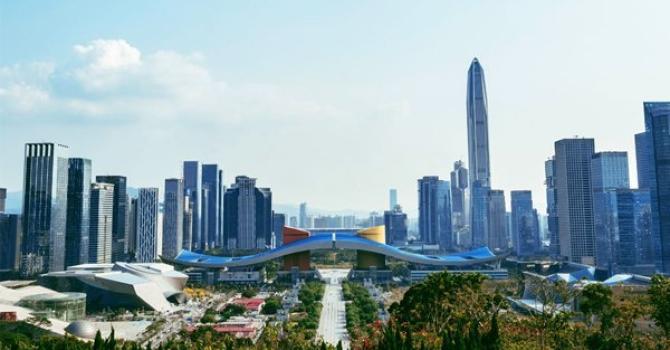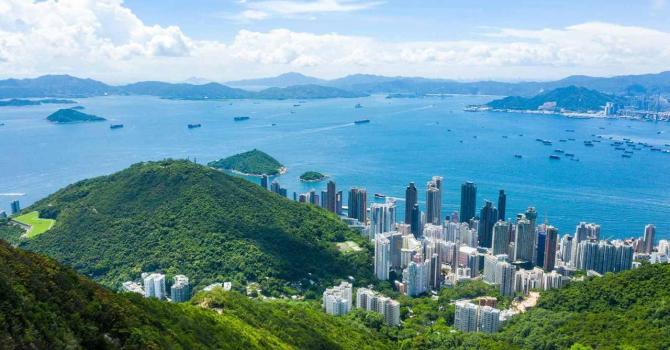HK should strive to unite biodiversity, climate, finance
We take nature and biodiversity for granted. Nonhuman life is like a backdrop — we don’t pay much attention to it. This is a mistake.
Nature provides all our needs and wants. It provides resources, services, and economic, mental, and physical benefits vital for human survival. Protecting the natural world is an investment in our well-being.
Governments know this because they have signed the United Nations Convention on Biological Diversity (CBD), one of the most critical global treaties related to sustainability.
The CBD is a sister treaty to the better-known Paris Agreement on climate change. They are complementary and mutually reinforcing treaties that address biodiversity loss and climate change challenges.
At its most basic, climate change is a major driver of biodiversity loss, with impacts on species, ecosystems, and ecosystem services. Conserving and restoring natural ecosystems like forests, wetlands and grasslands helps mitigate climate change through carbon sequestration and other ecosystem regulatory functions. In turn, this makes them more resilient to a changing climate.
Biodiversity and climate change are highly technical and wide-ranging subjects, requiring the engagement of experts working together with governments, businesses, industries, and communities to prioritize, develop, and implement specific plans.
Indeed, the CBD requires each signatory country to develop and implement its own national biodiversity strategy and action plan (BSAP). China’s first BSAP was issued in 1994; its most recent BSAP covers 2023-30. As a subnational entity, Hong Kong published its first five-year city plan in 2016.
In preparing the Hong Kong BSAP, the Hong Kong Special Administrative Region government conducted extensive consultations, starting with a steering committee made up of nongovernment experts and relevant government officials.
The steering committee chairman was a distinguished scholar, and the vice-chair was a senior official, thus balancing the importance of subject expertise with policy priorities.
The process lasted over two years and ended with a public consultation document with 67 specific actions for community comment, which became the city’s BSAP plan.
The process was unique. The nongovernment steering committee members worked hard to reach out to more interested people to hear their views and recommendations. They gathered some 400 recommendations.
The government accepted important items but could not implement the massive wish list — some of which required fundamental revamping or removal of land and housing policies — while many other suggestions could be incorporated under the broad heading of public education about biodiversity.
Despite complaints that the government should have adopted more of the recommendations, it was appreciated that the process broke new ground in Hong Kong’s consultation experience. Today, about 85 percent of the commitments have been completed, and the rest are expected to be achieved soon.
From the government’s perspective, the BSAP required “mainstreaming biodiversity within the government”. Relevant bureaus and departments had to incorporate biodiversity considerations into their work, such as enhancing biodiversity considerations in development plans, projects, and programs and promoting biodiversity in the urban environment. In other words, biodiversity had to be considered in all government work.
Hong Kong must now develop a new BSAP, following the UN Biodiversity Conference in Kunming in 2021 and Montreal in 2022. This resulted in the Kunming-Montreal Global Biodiversity Framework (GBF), which recognizes the dire circumstances of biodiversity loss and contains global targets to be achieved by 2030 and beyond. China hosted the Kunming gathering and was a co-host in Montreal.
The GBF’s 23 global targets, to be achieved by 2030, need to be localized by governments. This allows for the recovery of natural ecosystems in the following 20 years with net improvements by 2050 to achieve the CBD’s vision of “living in harmony with nature by 2050”.
The HKSAR government is proposing a 10-year plan that aligns with the national plan by focusing on four strategic areas: enhancing biodiversity conservation, building capacities, partnering with neighboring cities (e.g., partner cities in the Guangdong-Hong Kong-Macao Great Bay Area), and further mainstreaming biodiversity.
This time, the government feels there is no time to conduct another extensive consultation process like the previous time, as officials wish to publish the next BSAP in 2025.
Nevertheless, the city’s experts, which include five universities, 14 nongovernment groups working on biodiversity, and commercial companies, have come together voluntarily to determine the priorities for the coming decade in an organized process of regular meetings and to cooperate with the government.
They have sorted themselves into areas of expertise, including on new topics such as businesses’ interest in “nature-based solutions” to meet the increasing global demand for integrating biodiversity into developments for both the public and private sectors, which will, in turn, impact the bankability of projects.
Ecologists and the government are experiencing a new business interest in biodiversity. This is a good turn of events, as international businesses and investors are looking for data to verify the sustainability of projects.
It is by no means easy to quantify nature. Hong Kong is an excellent place to experiment with this because the city has strong knowledge of biodiversity and nature conservation, and the government has many big and small infrastructure projects that must now take new approaches to adapt to climate change to protect and revive biodiversity.
Combined with private sector efforts for their infrastructure and taking advantage of Hong Kong as a financial services hub, the city can step up its ability to be a green city and financial center.
It would be right and smart to co-learn and cooperate among biodiversity experts, businesses, and the government in producing Hong Kong’s next BSAP, which will consider climate change effects, cross-boundary opportunities, and financial innovations for nature-based financing.
Contributed by Prof. Christine Loh. The article was published on China Daily:



